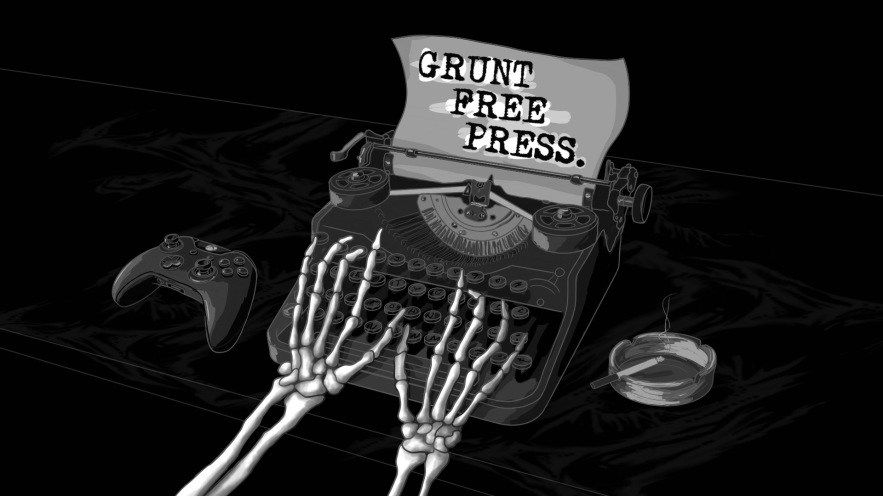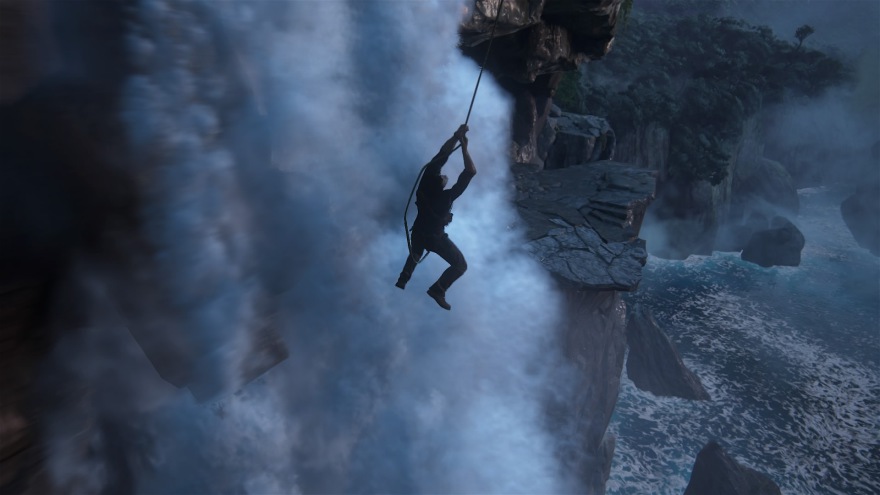Uncharted 4: A Thief's End Review (PS4)
Uncharted 4: A Thief's End is more Uncharted. The familiar loop of traversing cliffs and ruins, stopping to get into some sloppy combat with a couple dozen enemies that take too many bullets to kill, then solving some simple puzzles is in full force here. A series that sticks to it's tried and true mechanics isn't unique to Nathan Drake and Co., and it isn't necessarily a bad move. If you liked the previous Uncharted games you're probably going to like this one. Even if (like me) you only thought the second game was hitting the right notes and the others were ass, A Thief's End is worth playing. It may be more refinement than evolution, but the game certainly knows how to deliver on popcorn summer movie blockbuster in video game form.
Like the newest, shiniest film in the box office, Uncharted 4 dazzles with visual fidelity. One of the best looking games to date, it's an impressive mix of both technical wizardry and smart art direction that's gorgeous yet unassuming. As you ascend a cliff side and are presented with a stunning vista the game doesn't linger, draw attention to it, or take control away from the player to rub their face in the art. It's there to enjoy, or you can just move on because there is plenty more eye candy down the line. It thankfully doesn't fall prey to tech demo status and feels that much more confident for it. There's a nice variety on display, too, from tropical islands to ruined mythical cities, an old mansion and a densely populated market, underground caves and the open ocean during a squall... Every scene is loaded with new palettes. It's not exactly aiming for photorealism: there's a cartoony brightness to everything, and at times there's some proportion distortion like the issues there were with early 3-D graphics or like you're looking through a fisheye lense, but aside from a few minor graphical hiccups it's undeniably solid.
Most surprising about the game is the story. It's actually fairly strong and serves as an overarching driving force to continue playing. I found the previous three games to have plots that were uniformly garbage and forgettable, but A Thief's End shies away from convoluted Indiana Jones or James Bond globetrotting for the sake of adventure and instead draws (very heavy) inspiration from another cinema classic: The Goonies. And I mean it rips it off completely to the point I wonder how they aren't getting sued by Warner Brothers. Early in the game you take control of a young Nathan Drake (again, though this time it's not nearly as obnoxious...) and he looks suspiciously like a young Sean Astin: jean jacket, freckles and all. We're also introduced to his older brother, Sam, who has never been mentioned in the series at all until now, but he's more of a Josh Brolin/Kevin Bacon hybrid than an outright Poochy. They are searching for their deceased mother's diary that contains some notes about One Eyed Willy's treasure.
Further on, they're locked up in prison together where they hatch a scheme to get the pirate gold which involves a third person who turns into the game's villain. Sam is shot and presumed dead, conveniently ret-conning him into the Uncharted canon. In the present, Nathan is a somewhat washed up adventurer, working nine to five at a salvage company and living with what's-her-boring-face from the previous games. His brother shows up out of the blue and convinces him to continue their search even though Chester Copperpot failed, and what follows is a genuinely interesting story about Henry Avery becoming a Pirate King and convincing other pirates to pool their resources and build a utopian city in the middle of nowhere. They're pirates, of course, so they end up stabbing each other in the back and robbing the city's colonists in the name of more treasure. So the Drake brother's motivation seems justified: a massive collection of treasure from some of the most prolific and legendary pirates in history gathered in one place. How they find the city is a bit of the usual ridiculous clue inference, including following massive arrows imbedded in rocks that could easily be seen from passing aircraft and such, but somehow it seems less egregious here. Particularly when the puzzles and traps are kept small scale and local, and the Goonies callbacks are barely masked. When the last action scene is almost a shot for shot remake of the ending of the film, you'll want to shout, “Hey you guyyyss!” as the cave crumbles around the sinking pirate ship. Sully is Chunk, I guess.
As much as the grander plot is improved, there also is an excessive amount of downtime in the game. Clearly critic bait after the praise the previous titles and The Last of Us received for portraying mundane, everyday tasks, there's a worrying number of instances of scenes just dragging on too long or feeling like filler. Don't get me wrong: I have no problem with character building or explaining relationships or fleshing out the fiction or any of that. I bought into it during the tutorial with Nate and Sam running through an orphanage and conversing; they're introducing a new character that's absurd to spring on people and they did a pretty good job of it to boot. When they depicted Nate and whoever's boring marital home life early on, I was okay with it because I was sure it was to provide juxtaposition between that and the crazy shit that was to come later. About halfway through the fifteen or so hour game when we get another flashback of young Drake and Sam wandering around a mansion, picking up every art asset they find for an hour, the pacing just grinds to a complete halt and I started to get annoyed. Add some way too long stretches of Jeep driving or climbing where nothing is going on but “snappy” dialogue (including a Who Wants to Be a Millionaire reference... in 2016) and exposition dumps, and I was wondering if the editor fell asleep. Then it all concludes with an extended epilogue that hammers home every problem with this type of storytelling: you wander aimlessly around a house, picking up anything with a prompt that has no payoff, and the payoff is a cutscene that should have just been the entire scene. It's boring, and even turning a blind eye to how it bogs down the pace still doesn't alleviate the damage it does to replayability; if I think about the awesome setpieces in the game and the highlights, these nothing scenes are nowhere to be found and it deters me from wanting to play through again just knowing I'll have to deal with them. Video games aren't movies...
But Uncharted 4 is definitely worth playing at least once. The plot is engaging and Goonie-rific. Every aspect of the gameplay is refined; the puzzles aren't retardedly simple, the traversal is still almost automatic but rewarding, and the combat is still sloppy but at least stealth is a viable option for most encounters this time so you don't have to deal with it as much if you play your cards right. There's a multiplayer mode, but I haven't played it because I'm just not interested in taking the shit combat online, but it's there if you like bad gunplay. Regardless, I really enjoyed the campaign. Goonies never die.


